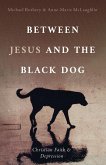The Black Sheep Honore de Balzac - La Rabouilleuse is an 1842 novel by Honoré de Balzac, and is one of The Celibates in the series La Comédie humaine. The Black Sheep is the title of the English translation by Donald AdamsonPhilippe and Joseph Bridau are two extremely different brothers. The elder, Philippe, is a superficially heroic soldier and adored by their mother Agathe. He is nonetheless a bitter figure, secretly gambling away her savings after a brief but glorious career in Napoleon's army. His younger brother Joseph, meanwhile, is fundamentally virtuous - but their mother is blinded to his kindness by her disapproval of his life as an artist. Foolish and prejudiced, Agathe lives on unaware that she is being cynically manipulated by her own favourite child, but will she ever discover which of her sons is truly the black sheep of the family? A dazzling depiction of the power of money and the cruelty of life in nineteenth-century France, The Black Sheep compellingly explores is a compelling exploration of the nature of deceit.
Dieser Download kann aus rechtlichen Gründen nur mit Rechnungsadresse in A, B, BG, CY, CZ, D, DK, EW, E, FIN, F, GR, H, IRL, I, LT, L, LR, M, NL, PL, P, R, S, SLO, SK ausgeliefert werden.









